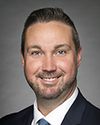Good afternoon, Mr. Chair and members of the committee. On behalf of the Ontario Federation of Anglers and Hunters, I would like to thank you for inviting us to talk about the importance of fresh water.
The OFAH is Ontario's largest not-for-profit fish and wildlife conservation-based organization. It represents 100,000 members, subscribers and supporters, and 725 member clubs. It strives to ensure the protection of our outdoor heritage and it encourages safe and responsible participation in activities like fishing and hunting. It champions the conservation of Ontario's fish and wildlife resources.
Of particular relevance to this committee's discussion is our interest in the management of fresh water, conservation of aquatic habitats and the ongoing threat of aquatic invasive species. Our team of biologists and professional staff conducts technical analysis and responds to environmental and fisheries-related policies, regulations and legislation at provincial and federal levels. We also coordinate several programs that benefit fisheries conservation.
In our last presentation to committee, we highlighted some of the conservation initiatives the OFAH is involved in, such as Ontario's invading species awareness program, through which we engage the public on aquatic invasive species, address high-risk pathways and facilitate monitoring and early detection.
We also administer the Lake Ontario Atlantic salmon restoration program and the community hatchery program.
Today I would like to take the opportunity to discuss the Canada Water Act and the Canada water agency and how these relate to OFAH and our members.
From our understanding, the act and agency are meant to provide for the management of aquatic resources through research and programs involving, among other things, conservation and utilization of water resources, but what are the best ways to keep our water clean and well managed? What opportunities are there for improving, restoring and protecting these valuable resources?
Our experiences have taught us the importance of connecting people to the outdoors through fishing and hunting, as these activities create value towards natural resources. Value promotes stewardship and stewardship benefits species and their habitats. While the focus is oftentimes on improving water quality for the purposes of things like clean drinking water and clean beaches, which are obviously important, we see prioritizing recreational fisheries as an excellent opportunity for addressing water-related issues and challenges.
Healthy and sustainable fisheries are synonymous with clean water resources. They go hand in hand. Focusing on recreational fisheries will help achieve most, if not all, water health and water quality goals and objectives. Fishing contributes to the nutritional needs and the social, economic and cultural well-being of individuals in communities all across Canada. Therefore, supporting nearly three million anglers across Canada, who spend close to $19 billion annually, and leveraging opportunities in this way will only pay dividends for the conservation of water resources now and into the future.
There's a need to reinvigorate a program similar to the recreational fisheries conservation partnerships program to restore, rebuild and rehabilitate Canada's recreational fisheries habitat. This can be achieved by providing funding to recreational fishing groups and conservation organizations like OFAH to undertake projects that support these objectives. Infrastructure investment into boat launches, better parking and boat washing stations will lend itself directly to engaging Canadians in the outdoors, creating lasting, meaningful connections to nature as well having positive economic outcomes.
The OFAH has established its own student research grant program that it's piloting this year, through which longer-term funding arrangements will be provided to students to complete their graduate work on fish- and wildlife-related research projects. In 2022, we also established our community conservation fund to support various initiatives, including fish and wildlife conservation projects, habitat restoration and protection, and invasive species mitigation.
On a nationwide scale, the Canada water agency should seek out opportunities in a similar way by investing in research related to recreational fisheries, creating funding mechanisms to support grassroots community actions and engaging Canadians in prevention and management of aquatic invasive species.
Fish and fishing are tangible. They are things that most Canadians can relate to. They foster a healthy lifestyle, an appreciation for nature and the outdoors, and a sense of stewardship towards the land and the water.
We look forward to working with the federal government and the Canada water agency to find the best ways to keep our water safe, clean and well managed by prioritizing Canada's recreational fisheries.
Thank you.




